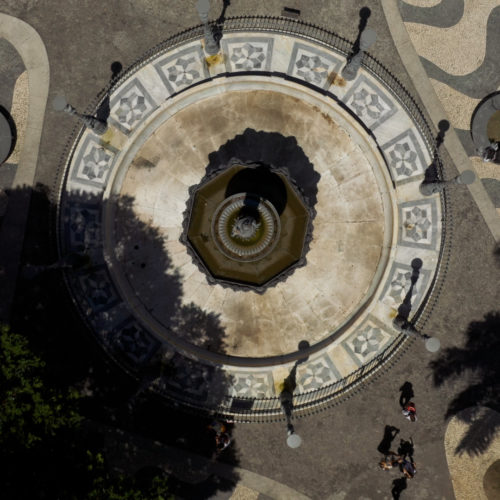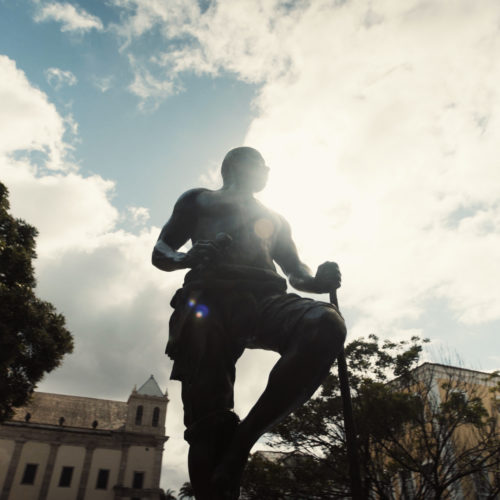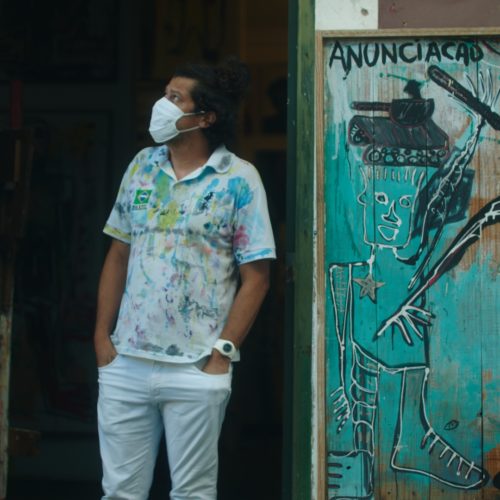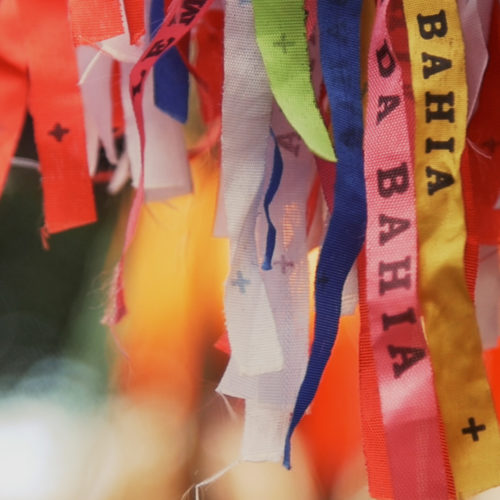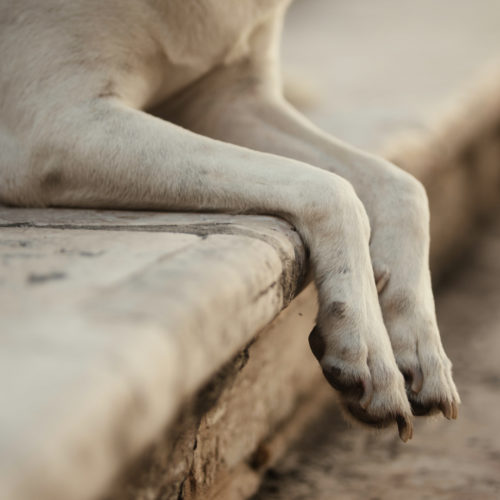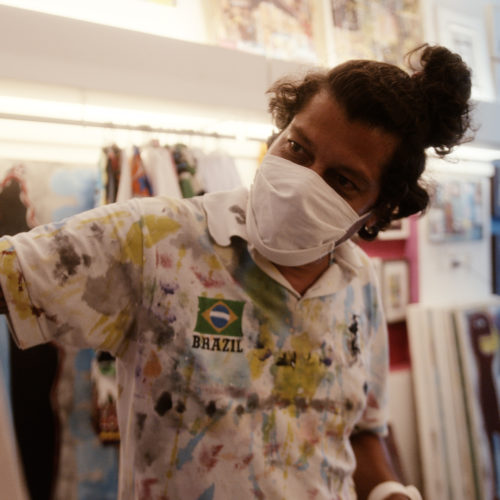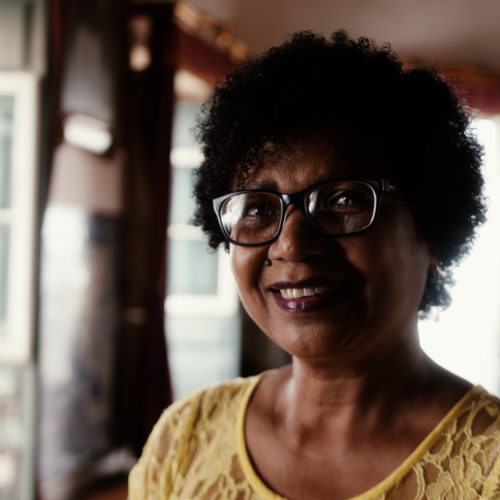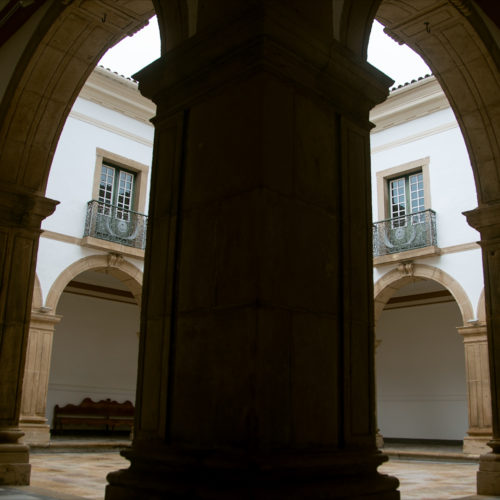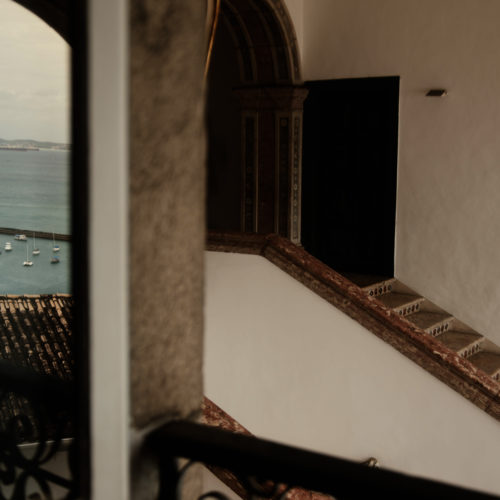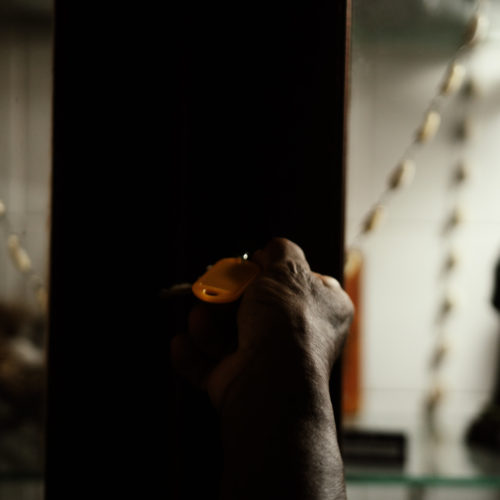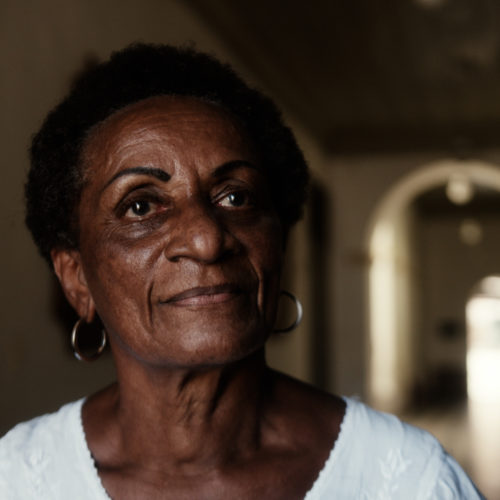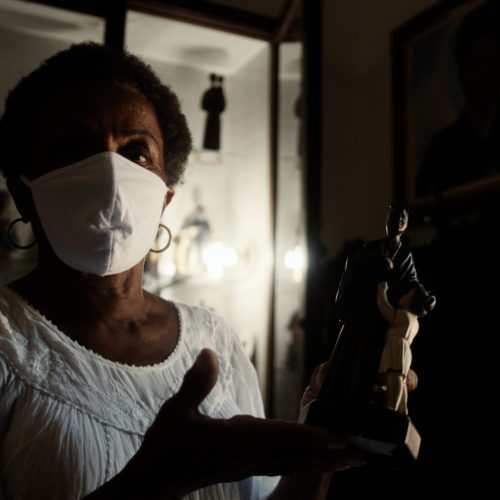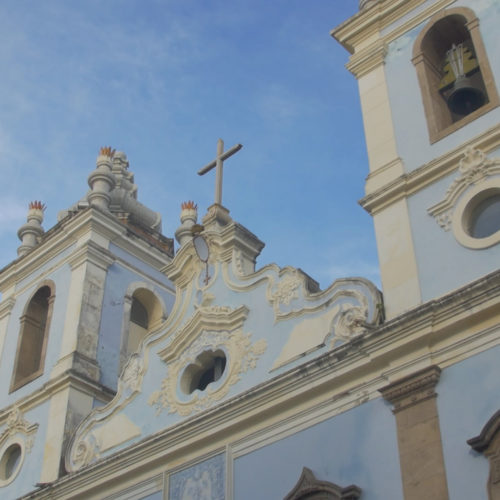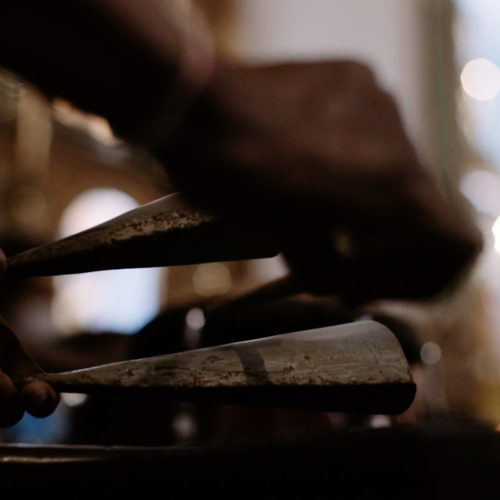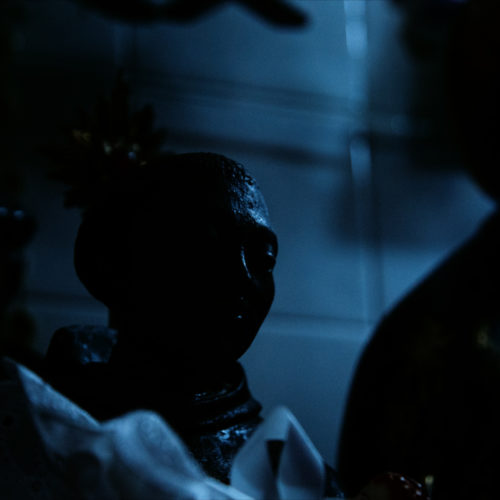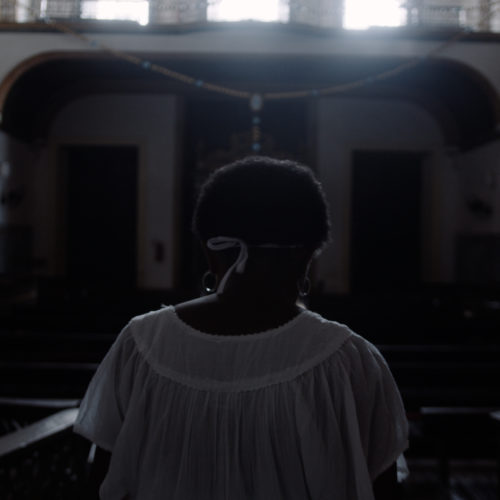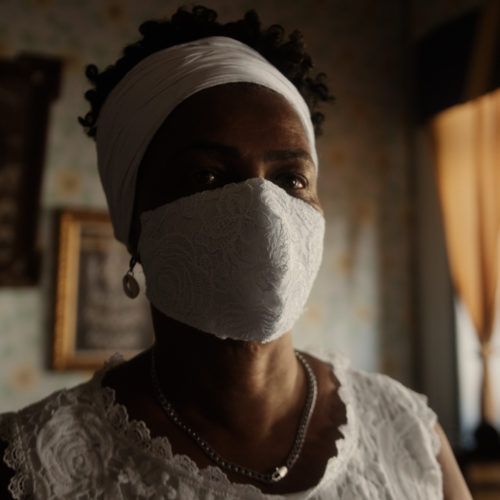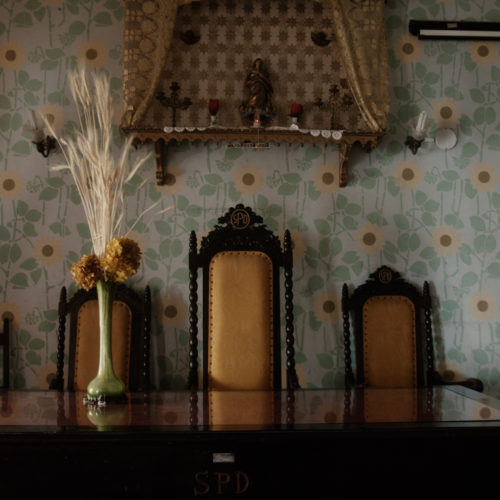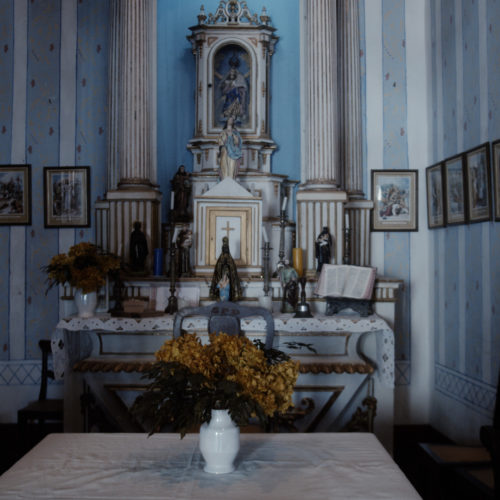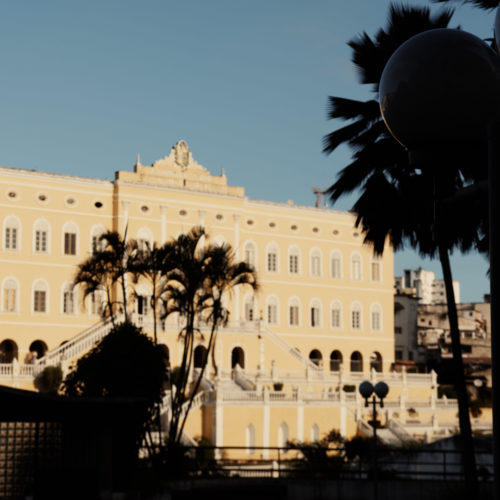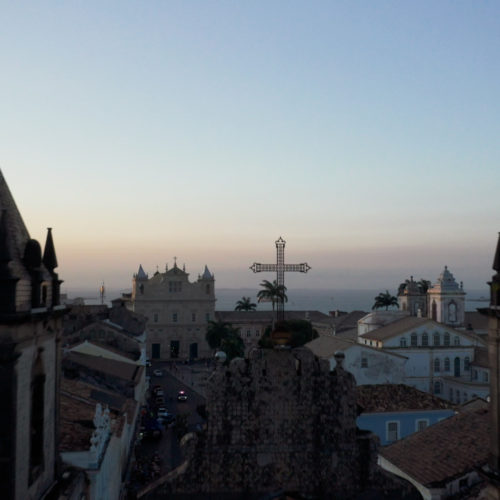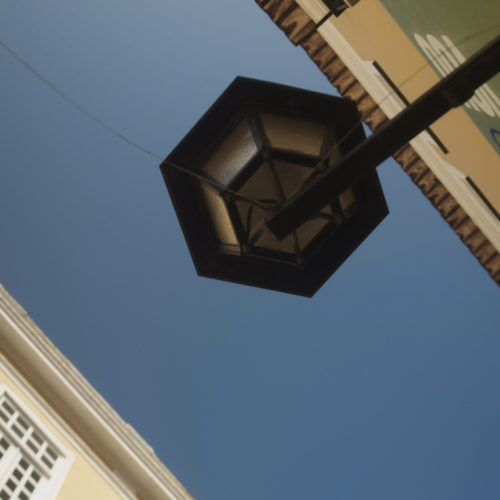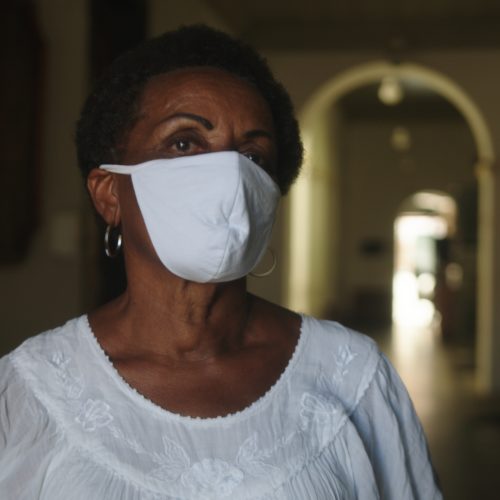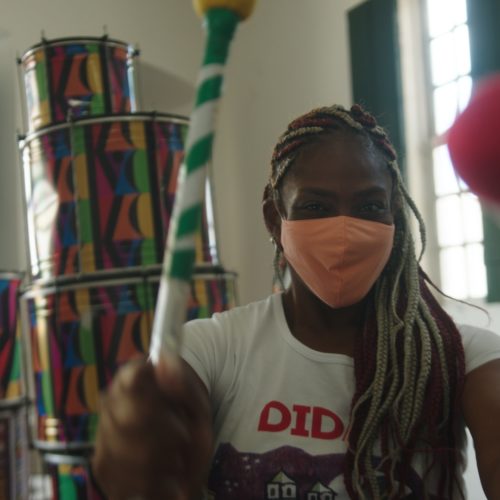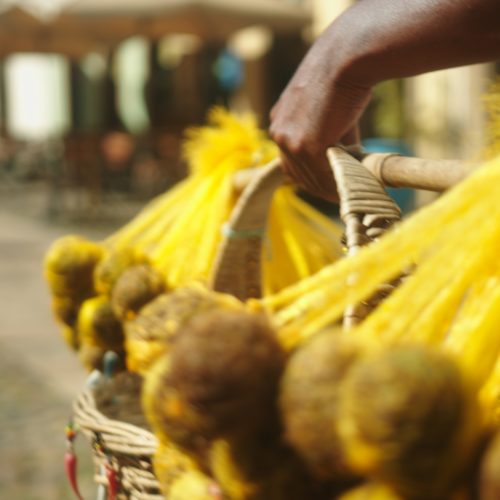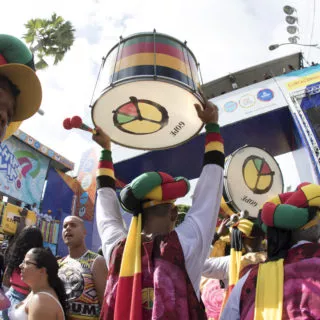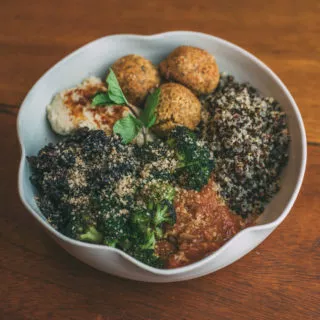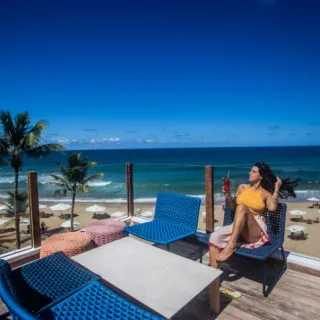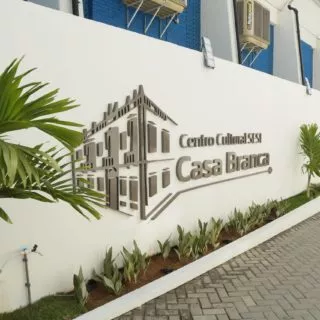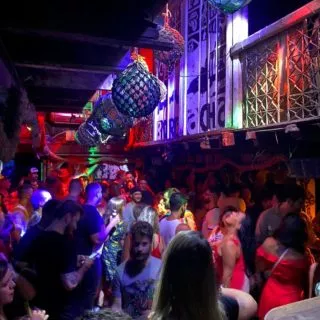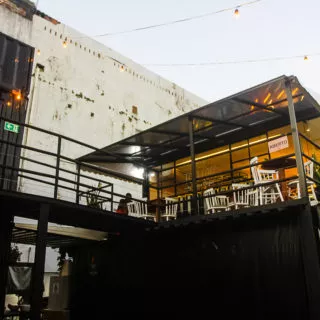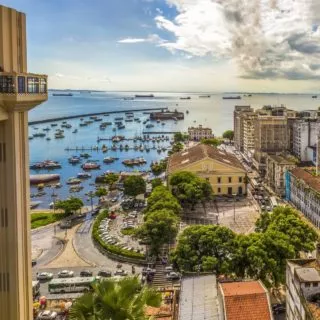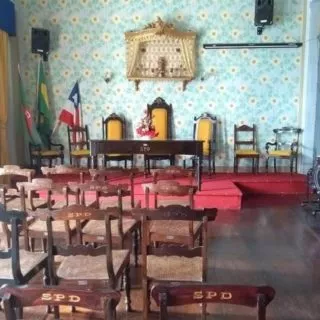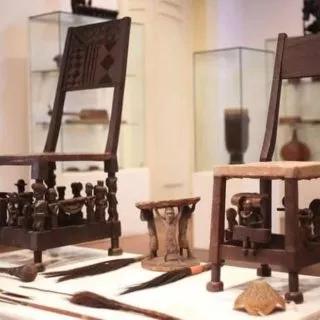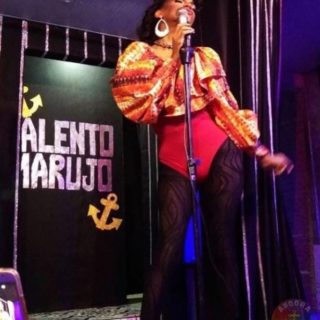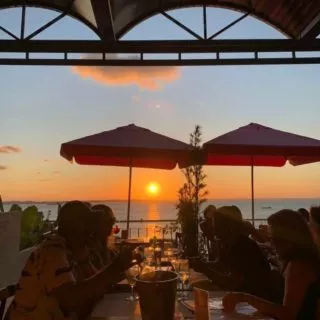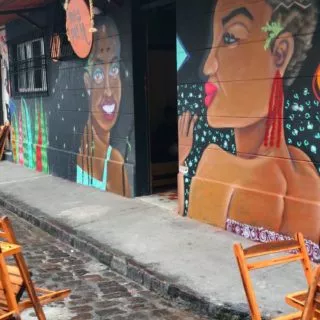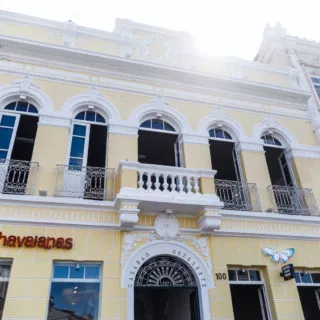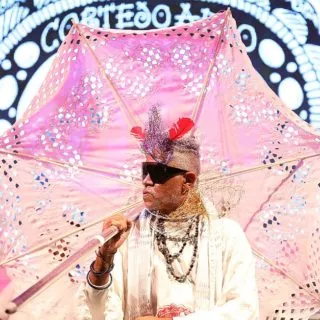
Webseries travels through Salvador showing experiences with the eyes of the people of Salvador
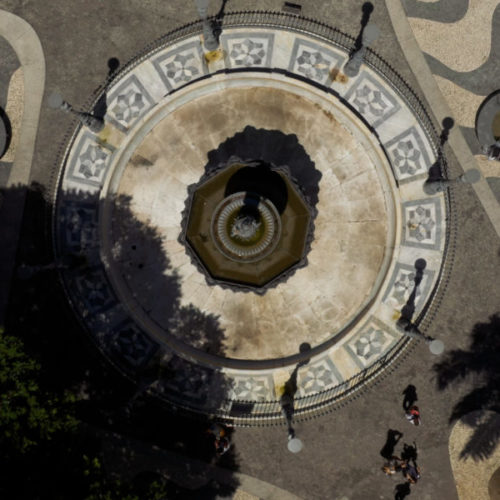
Salvador by Soteropolitanos takes you around the city showing you small great daily experiences. We toured several locations such as Pelourinho, Barra, Itapuã, Lower City, Rio Vermelho and Subúrbio, meeting people and their relationship with the city and, thus, discovering (or rediscovering) this beautiful Salvador.
What we want is to inspire you and make sure that, after watching, you will take your mask and 70° alcohol gel and go exploring your own city. If you are not from here, take this tour with the eyes of the people of Salvador. In this itinerary, we go with you to Pelourinho. We have gathered here all the important tips and information for conscious tourism.
Church of Our Lady of the Rosary of the Black People
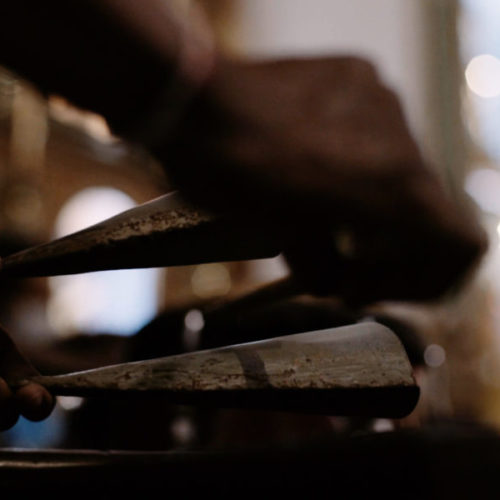
Catholic Religion, with Candomblé drums
This is one of those churches in Salvador which is worth visiting, even if you are not a Catholic. Preserving its history linked to the black diaspora, the liturgy of the cults makes use of music by Candomblé terreiros, to the sound of atabaques. In this church, a Catholic mass that incorporated some of the elements of African culture, such as singing and dancing, is celebrated every Tuesday.
The book “Irmandade do Rosário dos Pretos – Quatro séculos de devoção”*, explains the union of Catholic rites and practices with a sacred African experience. The organization of Africans around the cult and adoration of Our Lady of the Rosary, since its elevation to the category of Third Order, allowed the incorporation of devotion to other saints of Afro-Catholic tradition. Among them: Santo Antônio de Categeró, Santa Ifigênia, Santo Elesbão, São Benedito, Santa Bárbara and even the slave Anastácia, still not recognized in the Catholic hierarchy, but of strong value for Afro-Brazilian religiosity.
For its blue color and for being at the end of the slope that connects Pelourinho to Portas do Carmo, the church will be a good memory, in a perfect photo: the slope, the historic mansions, the Church of Our Lady of the Rosary of the Black People and you, with that smile! Find out more at this link.
https://www.salvadordabahia.com/experiencias/igreja-nossa-smanda-do-rosario-dos-pretos/
Note:
*The book “Irmandade do Rosário dos Pretos – Quatro séculos de devoção” can be purchased at the church itself. It has in-depth history and pictures of the place. All technical information in this text has come from this edition.
Service:
Church of Our Lady of the Rosary of Black People
Largo do Pelourinho, no number – Pelourinho, Salvador – BA, 40026-280
Dates: Masses, Monday and Sunday – at 9am. Tuesday, last Wednesday of the month, 1st Thursday of the month and Friday – at 6pm. Visitation: from Mondays to Saturdays, from 8 am to 12 pm and from 1 pm to 5 pm.
Contact: (71) 3421-5781.
Celebrations that take place there:
Santo Antônio de Categeró (2nd Sunday of January)
São Benedito (last Sunday in April)
Santa Barbara (December 4)
Brotherhood Anniversary, Bahia Independence Day (July 2)
Festa dos Santos Negros – The Black Saints’ Party (Elesbão and Efigênia), and Our lady of the Angels, Our Lady of the Rosary (last Sunday in October).
Didá Female Band
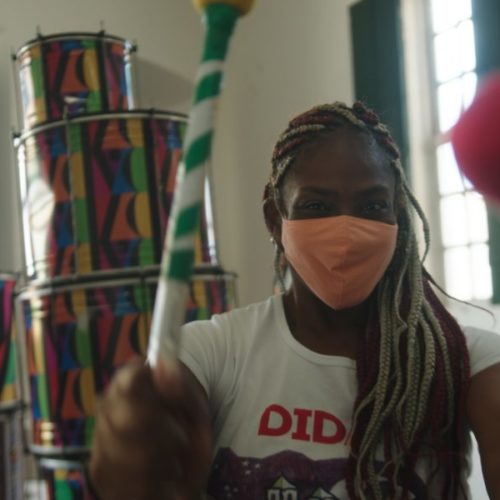
The power of women in percussion
From the idealization of Antônio Luís Alves de Souza, the legendary Neguinho do Samba, the rhythm that would mark Bahia’s carnival and Brazilian music forever was born: the samba reggae. Also in the hands of the master, a project was created in 1993 that would change, through the drums, the lives of many girls and women in the Historic Center of Salvador: the Didá Educational and Cultural Association.
The Association has activities throughout the year. At its headquarters, in Pelourinho, home and also ancestral territory, it maintains inclusion activities with free arts education for women of all ages and for children. There are classes such as percussion, afro dance, capoeira, theater and dialogues about identity for female empowerment. When there is financial support, the development of artistic expressions is further expanded and the girls and women of the Historic Center can participate in singing, computer and English workshops. Learn more at this link.
https://www.salvadordabahia.com/experiencias/dida-banda-feminina/
Service
Didá Female Band
Address: Rua Gregório de Matos, 19/21 – Pelourinho, Salvador – BA, 40026-240
Instagram: @didabandafeminina
Phone: (71) 98756-8454 / 98804-4807 / 3321-2042
Anunciação Artist’s Studio
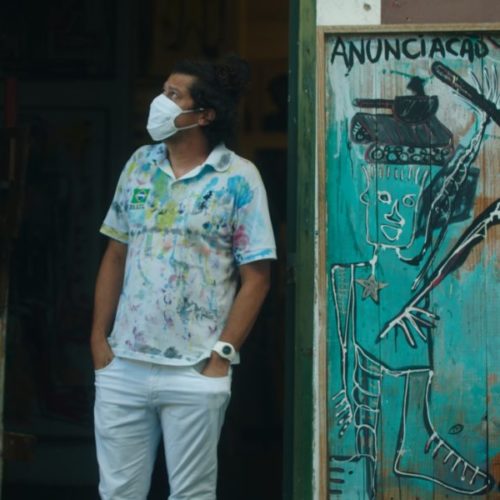
Have you noticed how charming Rua das Laranjeiras in Pelourinho is? There is an artist with very interesting works there: Anunciação.
The interesting thing is that, like other artists from the Historic Center, Anunciação works in the same place where he sells and exhibits the works. It is not difficult to visit the store and find him creating there. Some works such as mosaics, for example, are also made-to-measure for clients who want one of his works in their homes. Besides that, talking to the artist is worth it, he always has a good story to tell! Learn more at this link.
Service
Anunciação Artist’s Studio
R. das Laranjeiras – Pelourinho, Salvador – BA, 40026-230
Opening hours: every day, from 9am to 8pm.
Phone: 71 98708-8542. Better call before you go.
Museu da Misericórdia (Museum of Mercy)
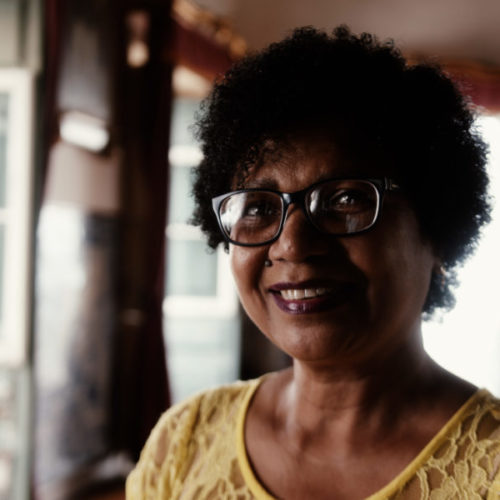
The imposing palace of the 17th century, located between the Municipal Square and Praça da Cruz Caída, holds an expressive part of the history of Bahia and Brazil. In each of the corridors and rooms of the Museu da Misericórdia, there is something that recounts health, political and social events in the city of Salvador. The place has already housed the Hospital da Caridade (Charity Hospital), the first health unit in the state, which history begins in the same year that the Bahian capital was born, in 1549.
The collection, composed of more than 3,000 cataloged pieces, contextualizes a historical narrative of almost 500 years. Highlight for the Portuguese tile panels, portraying the Procession of Fogaréu and the Procession of Bones; the Pharmacy, the 1867 cabinet, exclusively built to store bottles of pharmaceutical substances from the Hospital da Caridade; and the first gasoline-powered car in Bahia – the oldest on display in Brazil.
The state of conservation of the space, the beauty of the pieces and the quality of the guided tour are incredible. The monitors are great, and they tell stories that make each room have a life of its own! Find out more at this link.
Service
Museu da Misericórdia
Address: Rua da Misericórdia, 6, Praça da Sé, Pelourinho, 40.020-200 Salvador – BA
Opening hours: Monday to Friday, from 8:30 am to 5:30 pm. Saturdays, from 9am to 5pm. Holidays, from 9am to 1pm.
Tickets cost R$ 6 and R$ 3 (half).
School group visits need to be scheduled.
Phone: 71 2203-9830 / 9832.
Sociedade Protetora dos Desvalidos (Protective society of the underprivileged)
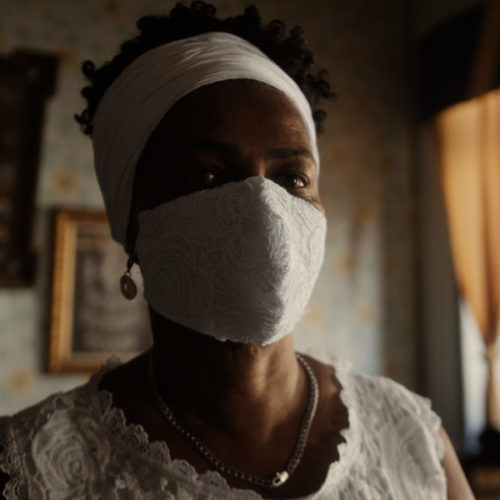
Apparently indistinct, the blue townhouse keeps a gem. From brotherhood, in 1832, to Sociedade Protetora dos Desvalidos (SPD), in 1851, this is the first black civil association in the country and one of the oldest in the Americas. Its first purpose was the purchase of manumission and payment of a professional training course for ex-slaves.
Currently, SPD carries out actions for the development and valorization of Afro-Brazilian culture with the objective of empowering the black people and underprivileged population, working to promote equality and combat racism, seeking public policies and improving the rights of children, women and black men. Learn more at this link.
Service
Sociedade Protetora dos Desvalidos
Largo do Cruzeiro de São Francisco, 017 – Centro, Salvador – BA, 40020-280
Opening hours: Monday to Friday, from 9 am to 6 pm
Contact: (71) 3322-6913. Better call before you go.
Important precautions
With the covid-19 pandemic, the capital of Bahia has been adapting to this new normal. During the tours, visitors should pay attention to the use of the mask, 70º alcohol gel and keep a safe distance from other people. Call in advance and find out about the security protocols of the places to be visited to avoid contamination.
This is the Plan for Resumption of Activities in Salvador. Understand all the working protocols in this link.

